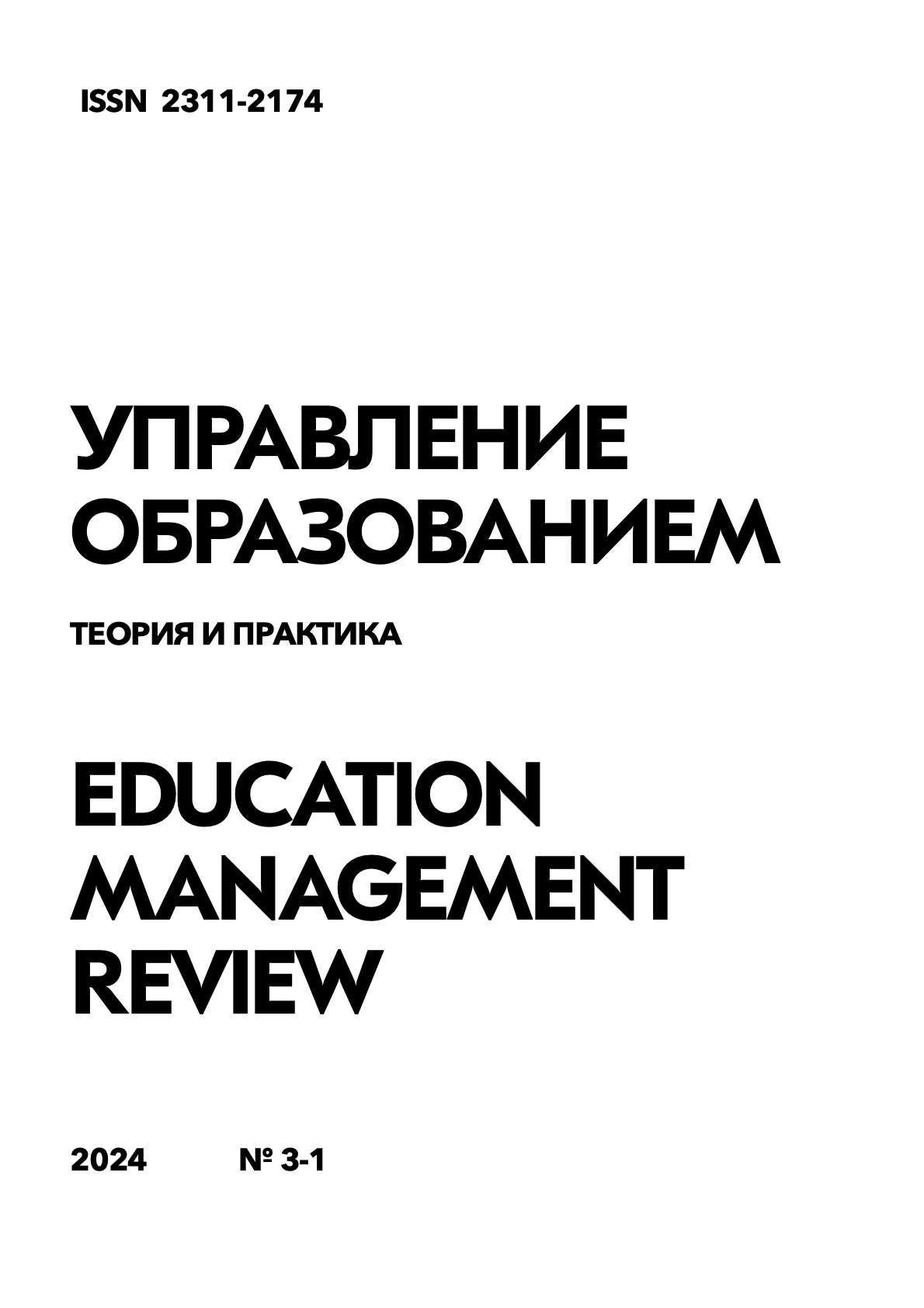Artificial intelligence and its role in building an individual development trajectory for university students
DOI:
https://doi.org/10.25726/f3942-2092-6900-mKeywords:
artificial intelligence, individual development trajectory, personalization of education, higher education, educational technologiesAbstract
The article examines the role of artificial intelligence (AI) in shaping the individual development trajectory of students in higher education institutions. The relevance of this study is due to the growing need to personalize the educational process, taking into account the individual characteristics and potential of each student. The purpose of the work is to analyze the possibilities of using AI technologies to build an optimal trajectory of learning and development for university students. The research methodology is based on an integrated approach, including theoretical analysis of scientific literature, generalization of practical experience in using AI in education, as well as empirical methods such as surveys and interviews of students and teachers. The study sample consisted of 450 respondents from 5 leading universities in the country. The results of the study indicate the significant potential of using AI to personalize educational trajectories. Thus, 78% of surveyed students noted that the introduction of AI systems would allow them to more effectively plan their learning and development, taking into account individual needs and goals. Teachers (82%) also confirmed that the use of AI technologies helps optimize the educational process and improve the quality of education. The practical significance of the study lies in the development of recommendations for the implementation of AI systems in the educational process of universities to build individual development trajectories for students. The proposed measures can be used by university administrations, teachers and specialists in the field of educational technologies to improve the learning process and increase its effectiveness.
References
Agarwal A., Sharma S. AI in higher education: A global perspective // International Journal of Educational Technology in Higher Education. 2021. № 18(1). Pp. 1-24.
Becker B.A., Giesinger H., Gütl C. Intelligent tutoring system for personalized learning in higher education // Computers in Human Behavior. 2020. № 107. Pp. 106-274.
Chassignol M., Khoroshavin A., Klimova A., Bilyatdinova A. Artificial Intelligence trends in education: a narrative overview // Procedia Computer Science. 2018. №136. Pp. 16-24.
Chen X., Li X. Personalized learning path recommendation based on artificial intelligence // International Journal of Emerging Technologies in Learning. 2021. № 16(7). Pp. 4-17.
Hwang G.J., Xie H., Wah B.W., Gašević D. Vision, challenges, roles and research issues of Artificial Intelligence in Education // Computers and Education: Artificial Intelligence. 2020. № 1. P. 100001.
Kulik J.A., Fletcher J.D. Effectiveness of intelligent tutoring systems: a meta-analytic review // Review of Educational Research. 2016. № 86(1). Pp. 42-78.
Li X., Chen Y. Research on personalized learning model based on artificial intelligence // In Journal of Physics: Conference Series. 2020. Vol. 1544. №. 1. P. 012067.
Malekzadeh M., Mostafavi E., Lahijanian B. A review of using artificial intelligence in education // Thinking Skills and Creativity. 2021. № 41. P. 100889.
Malyuga E, Maksimova D., Ivanova M. Cognitive and Discoursive Features of Speech Etiquette in Corporate Communication // International Journal of English Linguistics. 2019. Vol. 9, No. 3. P. 310-318.
Pedro F., Subosa M., Rivas A., Valverde P. Artificial intelligence in education: Challenges and opportunities for sustainable development // UNESCO Working Papers on Education Policy. 2019. № (7).
Peng H., Ma S., Spector J.M. Personalized adaptive learning: An emerging pedagogical approach enabled by a smart learning environment // Smart Learning Environments. 2019. № 6(1). Pp. 1-14.
Rienties B., Herodotou C., Olney T., Schencks M., Boroowa A. Making sense of learning analytics dashboards: A technology acceptance perspective of 95 teachers // International Review of Research in Open and Distributed Learning. 2018. № 19(5). Pp. 186-202.
Roll I., Wylie R. Evolution and revolution in artificial intelligence in education // International Journal of Artificial Intelligence in Education. 2016. № 26(2). Pp. 582-599.
Shen C.W., Ho J.T. Technology-enhanced learning in higher education: A bibliometric analysis with latent semantic approach // Computers in Human Behavior. 2020. № 104. P. 106177.
Viberg O., Khalil M., Baars M. Self-regulated learning and learning analytics in online learning environments: A review of empirical research // In Proceedings of the tenth international conference on learning analytics & knowledge. 2020. Pp. 524-533.
Zawacki-Richter O., Marín V.I., Bond M., Gouverneur F. Systematic review of research on artificial intelligence applications in higher education–where are the educators? // International Journal of Educational Technology in Higher Education. 2019. № 16(1). Pp. 1-27.




